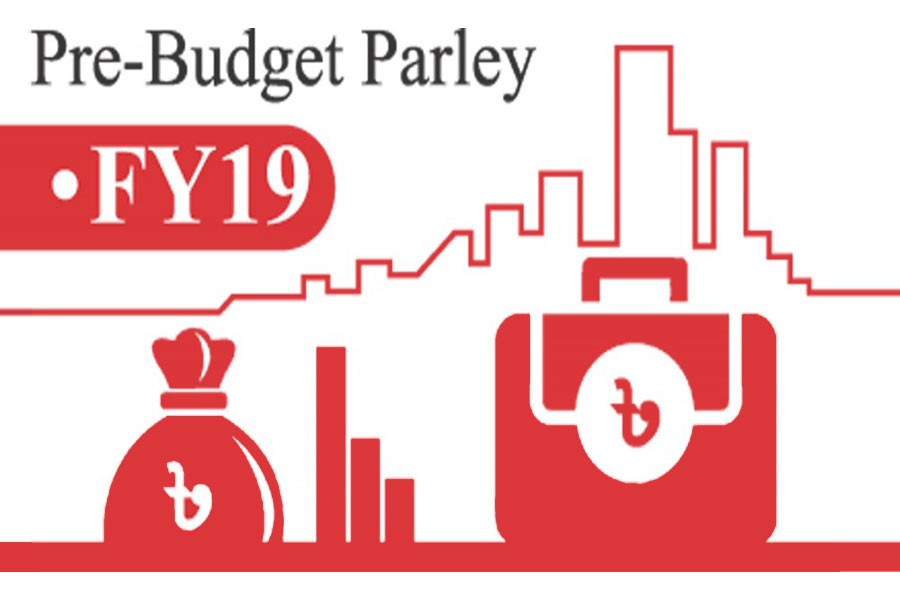The National Board of Revenue (NBR) is considering changing the way source tax is realised now to stem mismatch.
The board also hinted at not increasing the existing 0.70 per cent source tax for the export sectors in the next fiscal year.
"We are now changing the source tax realisation process, given that exporters bring lower amount of export proceeds against L/C (letter of credit) into the country," Md Mosharraf Hossain Bhuiyan, the revenue board chairman, said Wednesday.
But exporters often justify the lower exports income, saying the amount has been spent on the purchase of raw materials, he added.
He made the remarks against the backdrop of the allegation that a large amount of export income was laundered through mis-invoicing.
The board chairman was speaking at a pre-budget meeting with the leaders of the Exporters Association of Bangladesh (EAB), the Bangladesh Garments Accessories and Packaging Manufacturers and Exporters Association (BGAPMEA) and the Bangladesh Knitwear Manufacturers and Exporters Association (BKMEA).
Stressing the need for a long-term policy, Mr Bhuiyan said the government was not considering raising the existing source tax.
The board would strengthen its market monitoring drive aiming to prevent the misuse of the bonded-warehouse facility by some.
The sector leaders demanded a five-year tax policy including the reduction in the source tax to 0.5 per cent from the existing 0.70 per cent to help entrepreneurs plan their investments and business expansion.
Abdul Kader Khan, president of the BGAPMEA, said though the accessories sector was meeting the 90 per cent requirement for the garment sector, they were deprived of getting the equal benefit. The sub-sector is a backward linkage industry of the readymade garment sector.
"Though the government has slashed the corporate tax to 12 per cent for knit and woven garment exporters and 10 per cent for the environment-friendly green units last fiscal, the rate is still 35 per cent for accessories and packaging exporters," he said, calling for reducing the corporate tax to 12 per cent in view of the sector's contribution.
The textile and garment sectors also get cash incentives, which is not offered to the accessories makers, he said, urging the government to provide the similar facility to the accessories makers.
He also sought a reduction in the source tax, lowering it to 0.50 per cent from the 0.70 per cent.
The accessories and packaging markers' other demands included the allowing the association to issue utilisation permission for its member factories and increasing the import quantity permitted through bond licence to three years from the existing one year, and considering the premises of member factories to be bonded areas.
Echoing Mr Khan, Md Hatem, vice president of the EAB, and a former vice president of the BKMEA, said the corporate tax and source tax should be fixed for at least five years.
He, however, differed with the board chairman over its move to realise source tax, saying the rate should be determined based on CM (cutting and making) instead of exports proceeds and making it the final settlement.
The BKMEA's demands included the exemption from VAT on products and services used by knitters, duty-free import facility for the capital machinery, fire preventive and energy savings equipment and spare-parts, conducting audit in two years instead of one year and increasing the time to 6 months from existing three to provide related documents.
Banglacraft, an association of handicraft manufacturers and exporters, demanded for increasing government's existing cash incentive facility to 30 per cent from the existing 20 per cent.


